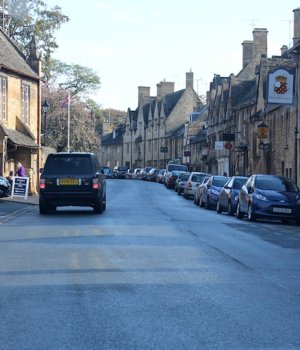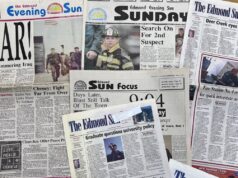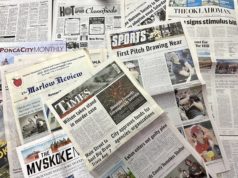The conversation between two British couples at Eight Bells pub in the tiny village of Chipping Campden, England, had been going on for a while, covering topics from Brexit to lamb shanks.
Then, with the screech of a record needle being dragged across of record album, it turned to America.
That’s what the English call us. It’s rarely the United States. Instead, it’s America. Or the States.
“They have no culture in America,” one of the men said.
My wife and I had heard this analysis before, usually stopping our own conversation to listen in. Eavesdropping is hard enough to avoid in a packed pub, but when this particular subject comes up in foreign countries, it’s irresistible.
The man went on to list the reasons America lacks culture. Much of it centered on our food. The huge portions, the dominance of fast food and our limited palettes. (I can’t help but note the irony while looking at a menu of specials that included not one but two internal organs.)
Guns, our flagging public schools and lack of quality museums were other topics.
The man in the pub saved the best for last. Among all the others, perhaps the biggest reason he saw America as so troubled iss the nuttiness of our media and how we consume news.
That got my attention. As close as British culture might feel to our own, the way Americans consume news and the tone of our coverage can be markedly different.
Newspapers a bigger part of U.K. culture
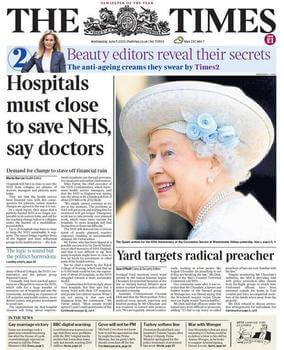
For starters, the U.K. is still very much a newspaper culture. As the industry fades into the sunset in the United States, it trudges on in Britain.
London has eight large daily newspapers. Ride the Tube and you’ll usually see plenty of people with their faces buried behind a copy of the Times or the Sun, among others. Most are distributed nationally.
We visited the local Co-Op at the end of each day in Chipping Campden to pick up a candy bar or bottle of water. Co-Ops are ubiquitous in central England.
A cross between a convenience store and a mini grocery, the chain sells all the London papers and a few regional publications. At the end of each day, the racks were mostly empty. I can’t remember the last time I’ve seen that at an Oklahoma City 7-Eleven.
TV coverage also interesting
On the telly, things are also different.
The panel shows, which are far fewer, seem less combative. Topics tend to vary more, and when breaking news happens, it’s not breaking news for six days even though nothing fundamentally has changed.
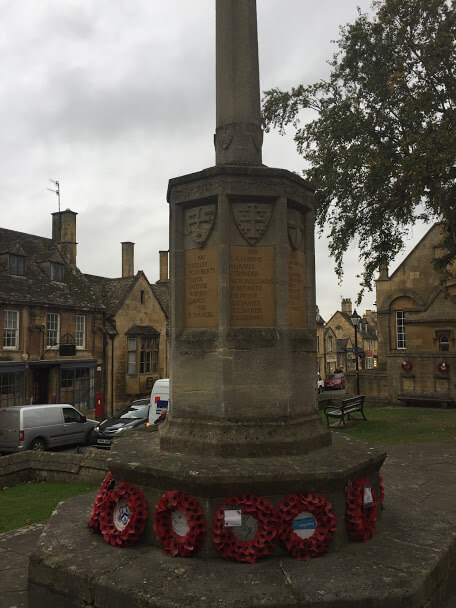
My first exposure to this came during our first visit in 2014 at the height of the Ebola scare in West Africa
As the epidemic unfolded in the weeks before we left, my cable-news-addicted parents sent me texts and emails from questionable sources about how Ebola was very likely to spread across the world and kill every living thing in its path.
“You just never know,” my dad said from his sleepy and decidedly Ebola-free suburban Tulsa neighborhood. “This could be how it all ends.”
Less than 24 hours later, I was on a London Underground train, and nobody was wearing surgical masks. There wasn’t a run on plastic sheeting.
On TV, the Ebola coverage was measured. BBC News approached it clinically, with actual scientists and people who know something about Ebola answering intelligent, relevant questions from hosts who didn’t appear to have miles of airspace between their ears.
And then something amazing happened: They moved on to other stories. In America, the cable networks hammered the story morning, noon and night.
Keep calm and don’t let media freak you out
I thought about that during my most recent eavesdropping episode in the Chipping Campden put. The two men’s conversation eventually broke up, and my wife and I talked about what we had just heard. That’s a moment you won’t find in guidebooks, but it’s a fun part of travel regardless of whether or not you agree with the perspective.
The “Keep calm and…” mantra made popular in England during World War II may have played out a long time ago, but there’s a reason it was a thing in the first place. The British are a little scrappier than we are in a lot of ways, or at least more deliberative in when and how they panic.
A lot of that may be attributable to their media.








